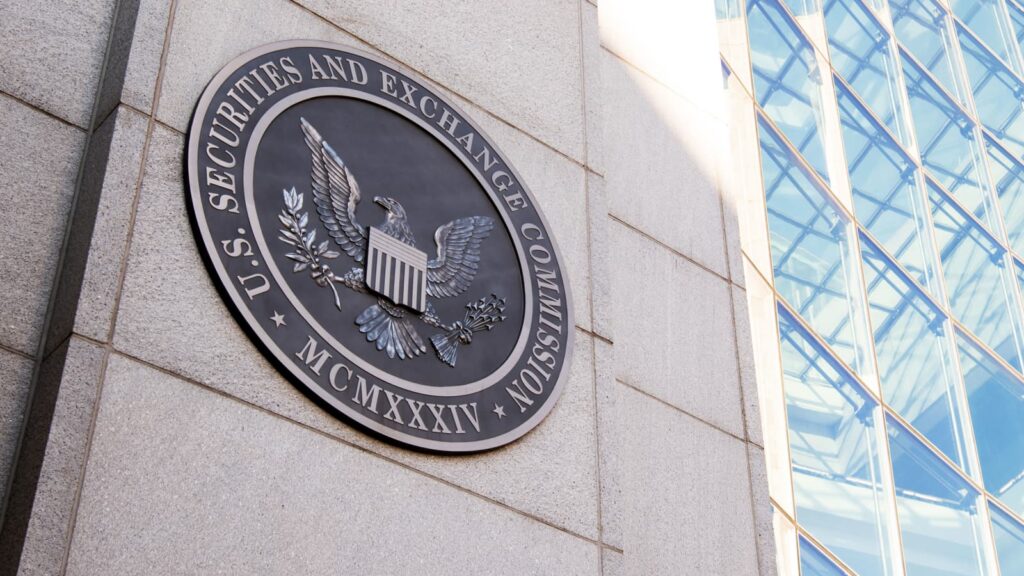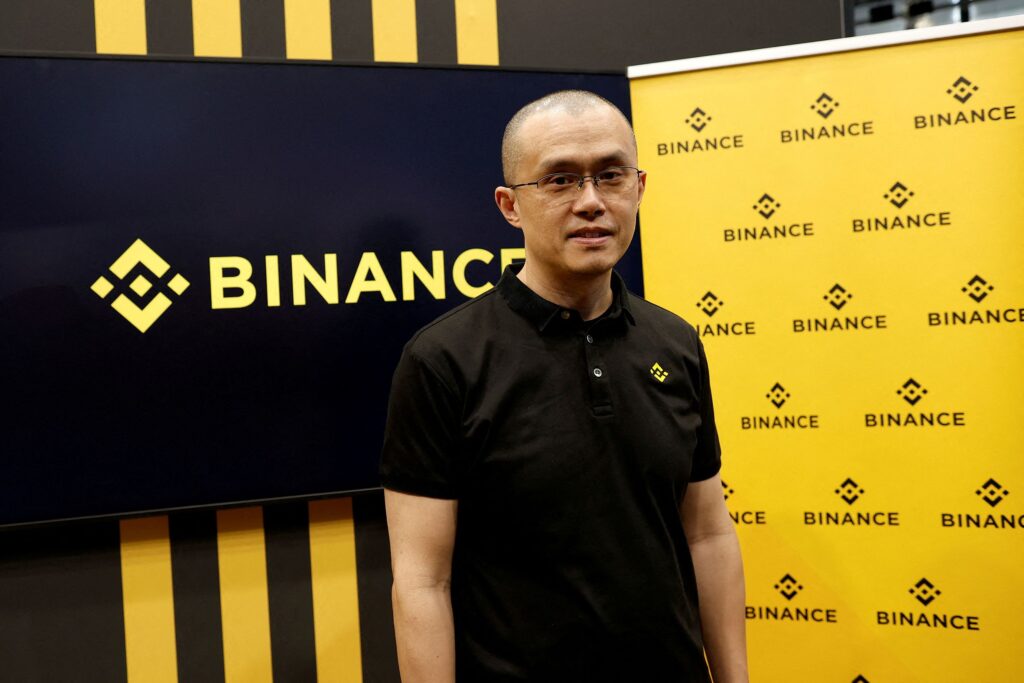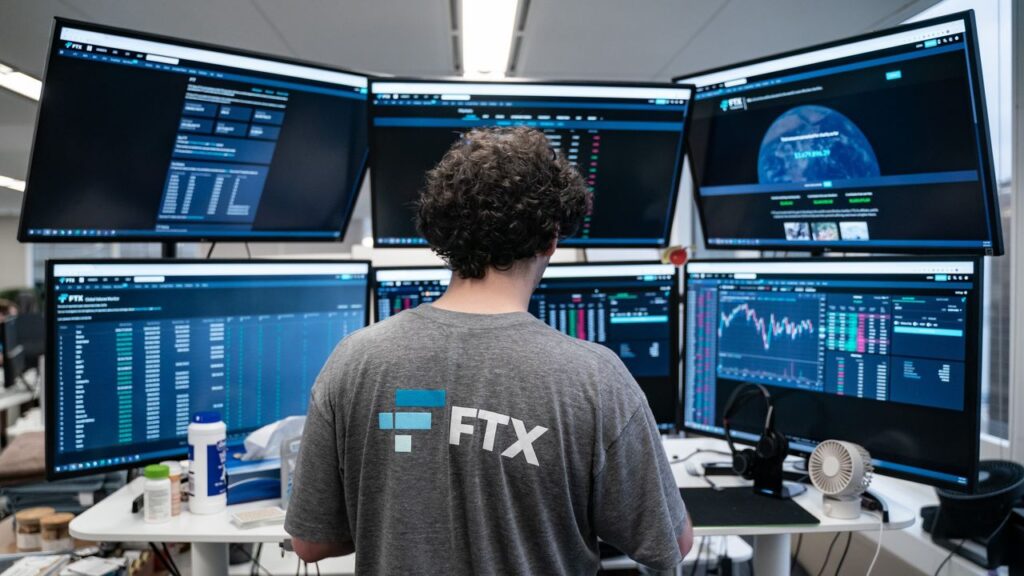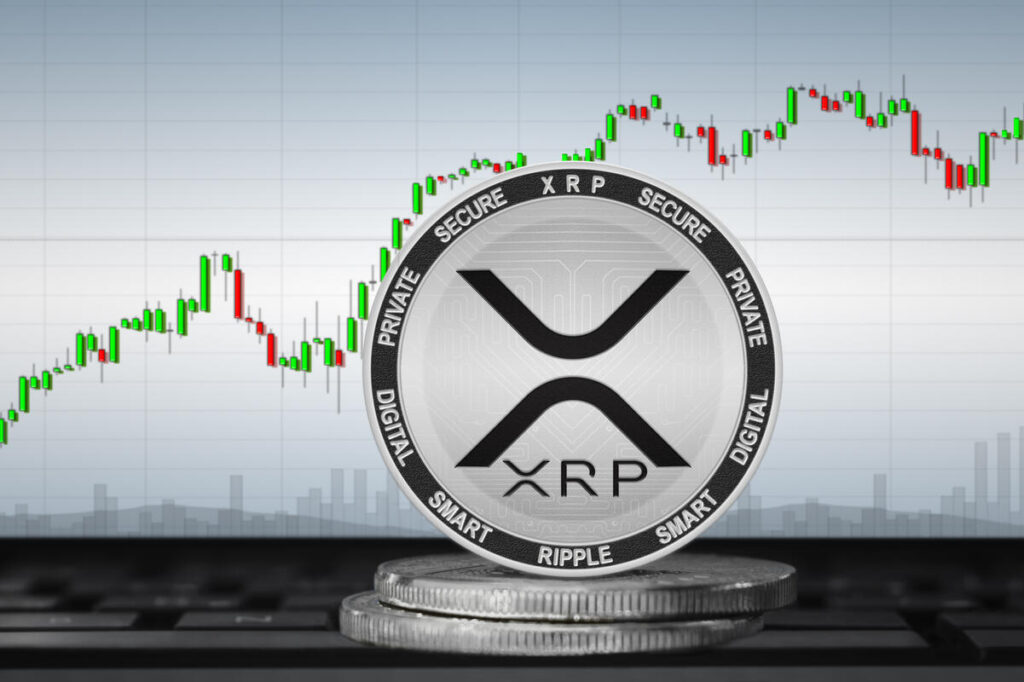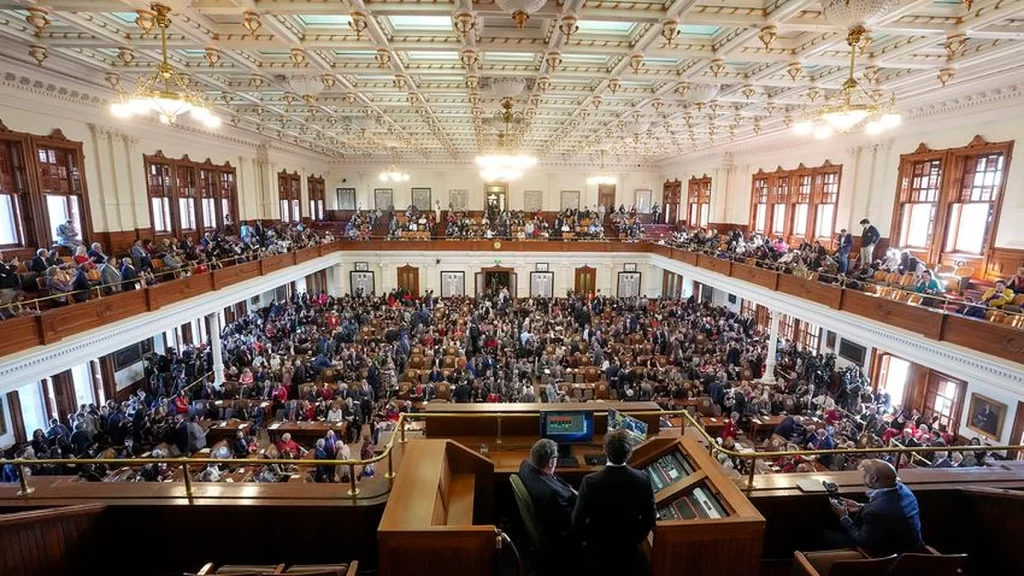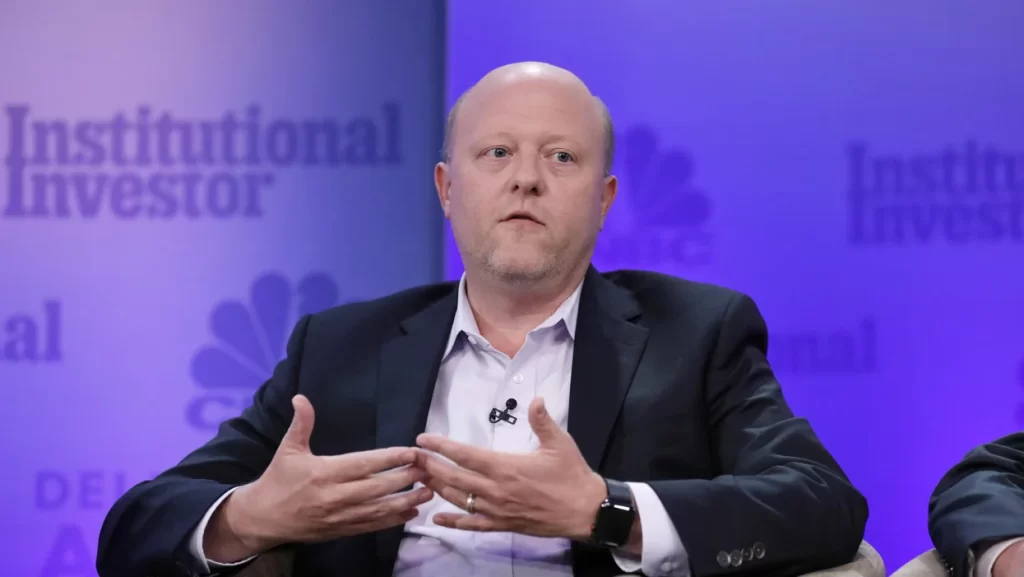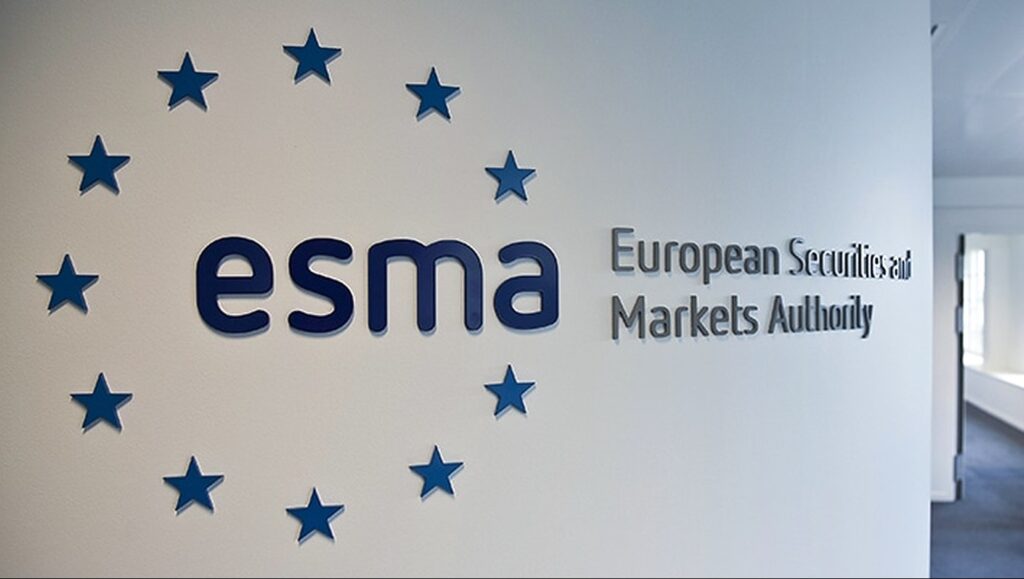A recent report published by Galaxy Digital, a crypto investment firm, reveals that despite regulatory scrutiny in the United States, crypto firms in the country are still driving innovation.
In fact, nearly half of all capital investments in the crypto industry are flowing toward U.S.-based crypto businesses.
The report, released on July 14, highlights the significant share of interest from venture capital (VC) firms in U.S. crypto startups.
It states that these startups accounted for more than 43% of all completed deals and raised over 45% of the capital invested by VC firms.
Meanwhile, the United Kingdom secured 7.7% of the capital investment, with Singapore and South Korea attracting 5.7% and 5.4% respectively.
However, the report also points out that the total amount of capital invested in crypto and blockchain startups has been declining quarter-to-quarter.
Only $720 million was raised by 10 new crypto VC funds in Q2 2023, marking the lowest since the beginning of the COVID-19 pandemic in Q3 2020.
READ MORE: Coinbase Temporarily Suspends Staking Services
Interestingly, the combined capital raised by crypto and blockchain startups in the last three quarters was less than what they raised in Q2 of the previous year.
The report reveals that while companies in the “broad Web3 category” had more deals, it was companies in the “trading category” that raised more capital.
These findings come at a time when the United States Securities and Exchange Commission (SEC) has been taking action against several U.S. crypto firms.
In a case between the SEC and Ripple Labs, a judge recently ruled partially in favor of Ripple by declaring that XRP is not a security when sold on digital asset exchanges.
Ripple CEO Brad Garlinghouse has criticized the SEC, believing that the regulatory body is stifling innovation and the cryptocurrency industry in the United States.
He argued that the SEC’s handling of the Hinman speech documents during the Ripple case reflects its overall negative stance toward the crypto industry.
Adding to the regulatory actions, the SEC also took action against major crypto exchanges Binance and Coinbase in early June, accusing them of violating securities laws and offering unregistered securities.
Despite these regulatory challenges, the report highlights the resilience and ongoing investment interest in U.S. crypto startups, emphasizing their crucial role in driving innovation within the industry.
Other Stories:
SEC Stresses Crucial Clarification Amid Coinbase Battle
Bitcoin Long-Term Holders Return as BTC Price Surges
Cardano Surges 23.9% Following Favorable XRP Ruling, Investors Eye Further Gains
Ripple CEO Brad Garlinghouse expressed his belief that the United States Securities and Exchange Commission (SEC) will face a lengthy process before having the opportunity to appeal the ruling in its case against Ripple Labs.
On July 13, Judge Analisa Torres of the U.S. district court delivered a partial ruling in favor of Ripple, stating that the XRP token is not a security when sold on retail digital asset exchanges, but ruled it as a security when sold to institutional investors based on the Howey test.
In an interview with Bloomberg on July 15, Garlinghouse downplayed the significance of the institutional sales decision, considering it to be the least significant aspect of the lawsuit.
He believes that if the SEC were to appeal the ruling on retail sales, it would further solidify Judge Torres’ decision.
Garlinghouse emphasized that the current legal stance is that XRP is not a security, and he expressed optimism while noting that the SEC’s appeal process would likely take years.
READ MORE: Bitcoin Long-Term Holders Return as BTC Price Surges
Garlinghouse pointed out that this case marks the first time the SEC has lost a crypto-related lawsuit. He criticized the SEC for targeting players in the crypto industry who lacked the resources to mount a robust defense, describing the agency as a “bully.”
When the case was initially filed against Ripple, many U.S. crypto exchanges adopted a wait-and-see approach due to the resulting uncertainty.
Consequently, exchanges like Coinbase and Kraken completely delisted XRP.
According to Garlinghouse, the SEC’s actions created confusion in the market. He accused the agency of intentionally causing more confusion while having full knowledge of the existing confusion.
This deliberate confusion, in Garlinghouse’s view, allowed the SEC to assert power and hinder innovation within the United States.
Garlinghouse argued that the SEC prioritizes power and politics over sound policy and clear regulatory guidelines.
This approach, he asserted, has made it challenging for entrepreneurs and investors to participate in the U.S. crypto market and blockchain industry, hindering growth and innovation in the country.
Overall, Garlinghouse’s outlook is positive, considering the court ruling a significant milestone for Ripple and suggesting that the SEC’s appeal process would be protracted.
He called for a shift towards clear and supportive regulations to foster a thriving crypto ecosystem within the United States.
Other Stories:
Coinbase Temporarily Suspends Staking Services
Cardano Surges 23.9% Following Favorable XRP Ruling, Investors Eye Further Gains
In a recent letter to Binance users, Changpeng Zhao, the CEO of the popular cryptocurrency exchange, reflected on the company’s past and outlined key trends shaping the industry.
As Binance celebrated its sixth anniversary, Zhao acknowledged the challenges the company has faced over the years.
He recalled the bear market of January 2018, which followed a surge in user registrations.
Despite the market decline, Zhao emphasized the importance of prudent financial management, which the team learned during that period.
Zhao also discussed Binance’s experiences during the company’s second crypto winter. He mentioned the firm’s investments in the collapsed crypto project Terra and the bankrupt crypto exchange FTX.
Binance’s initial $3 million investment in Terra Classic (LUNC) experienced a significant increase in value, soaring to $1.6 billion before crashing close to zero in 2022.
In contrast, the company exited its investment in FTX early, more than a year before it encountered difficulties.
READ MORE:Ripple’s XRP Victory Against SEC: A Blow to Regulator’s ‘War on Crypto’
These incidents led to increased regulatory scrutiny, with Binance being associated with FTX. Zhao addressed these comparisons, stating that Binance and FTX are different entities.
He rejected the notion that they should be grouped together, drawing a parallel to investment firms on Wall Street and the infamous Madoff case.
Despite the challenges, Zhao reassured Binance users that the company remains committed to prioritizing their interests and protecting them.
Looking forward, Zhao highlighted several trends shaping the industry.
He noted that traditional finance entering the crypto space would facilitate institutional adoption, decentralized finance (DeFi) would continue to accelerate, and more people would engage with Binance’s products.
Additionally, he anticipated the growth of regulated exchanges despite current market uncertainties.
Zhao emphasized the significance of getting the regulatory landscape right, asserting that countries that do so will have a significant advantage in the future.
He believes that we are at a pivotal moment in history, where the decisions made now will have far-reaching consequences for centuries to come.
In conclusion, Changpeng Zhao’s letter to Binance users reflected on the company’s journey, highlighting the lessons learned from past challenges.
He also outlined key trends in the industry, emphasizing the importance of regulatory clarity and the potential for transformative shifts in the financial landscape.
Despite the obstacles, Binance remains focused on its users and committed to their protection.
Other Stories:
Worldcoin’s World ID Project Surpasses 2 Million Users
Monochrome Asset Management Proposes Bitcoin ETF on ASX
OpenAI Faces FTC Investigation Over Privacy and Data Practices
OPNX, a specialized exchange for trading bankruptcy claims of collapsed cryptocurrency firms, has recently added FTX and Celsius claims to its platform.
In an announcement made on July 14, it was revealed that FTX claims can be instantly onboarded and converted into collateral in the form of OPNX’s native reborn OX (reOX) tokens or oUSD, the platform’s credit currency.
This allows users to engage in cryptocurrency futures trading using reOX as collateral.
The tokenization of the claims and the onboarding process are facilitated through a partnership with Heimdall, which also handles user verification.
The developers at OPNX explained the conversion process:”At the outset, claims will be converted into reOX tokens with a bonus of 100% of the market price, gradually reducing to 0% over a period of 50 weeks.
This means that during the first week, users will receive double the market price for their FTX claim.”
To illustrate this, OPNX provided an example: Suppose a user holds an FTX claim worth $1 million with a claim price of 30 cents on the dollar.
They would receive $600,000 worth of reOX claim amounts in return.
If a user’s claim is determined to have preference, an equivalent dollar value of the issued reOX tokens will be reclaimed from the user.
READ MORE: Worldcoin’s World ID Project Surpasses 2 Million Users
The claims are transferred and securely stored in a separate trust.
OPNX was established earlier this year by Kyle Davies and Zhu Su, who are the co-founders of Three Arrows Capital, a bankrupt Singaporean hedge fund also known as 3AC.
On its first day of operation, OPNX recorded a modest total trading volume of $13.64.
However, by late June, the daily exchange volume had surpassed an impressive $30 million.
In May, Cointelegraph reported that the United States Internal Revenue Service is seeking $44 billion in unpaid taxes from FTX’s bankruptcy proceedings.
Similarly, on July 13, the U.S. Federal Trade Commission imposed a $4.7 billion fine on Celsius, with the judgment currently suspended.
OPNX’s listing of FTX and Celsius claims demonstrates its commitment to providing a platform for trading these bankruptcy claims in a secure and transparent manner.
With its tokenization process and collaboration with Heimdall, the exchange aims to offer users a convenient and efficient way to convert and trade their claims.
The growing trading volume on OPNX indicates the increasing interest and participation of users in this unique market.
Other Stories:
Ripple’s XRP Victory Against SEC: A Blow to Regulator’s ‘War on Crypto’
Monochrome Asset Management Proposes Bitcoin ETF on ASX
OpenAI Faces FTC Investigation Over Privacy and Data Practices
Cardano, a prominent cryptocurrency, witnessed an impressive surge in price, soaring by 23.9% on July 13.
This significant rally has left investors intrigued about the potential for further gains and has sparked questions regarding Cardano’s ability to break the $0.40 mark.
The surge in price came shortly after a favorable judicial decision related to XRP, another cryptocurrency.
There are three key factors supporting Cardano’s bullish momentum. Firstly, Cardano has the potential to integrate with other blockchains, which opens up new possibilities and expands its reach.
Secondly, there has been increased activity in decentralized applications (DApps) built on the Cardano platform, which demonstrates growing adoption and usage.
Lastly, the recent XRP ruling has alleviated regulatory risks, benefiting ADA and other coins impacted by regulatory concerns.
It is worth mentioning that Cardano and its ADA token faced scrutiny from the United States Securities and Exchange Commission (SEC) during recent legal actions against major exchanges like Coinbase and Binance.
The SEC referred to ADA as a potential security. However, it is important to note that while the staking offering may be considered a security, it does not pose a direct risk to Cardano or its development companies.
READ MORE: Worldcoin’s World ID Project Surpasses 2 Million Users
The XRP ruling on July 13 helped mitigate regulatory concerns and contributed to the rally in ADA’s price.
A proposal to incorporate Algorand as a Cardano sidechain has gained attention within the cryptocurrency community.
Although it may seem unlikely for the Algorand community to accept this suggestion, the proposal gains relevance given AlgoFi’s shutdown announcement following regulatory allegations against Algorand.
This integration could help Algorand avoid regulatory scrutiny while boosting the adoption of Cardano’s ecosystem.
Smaller altcoins could also be incentivized to become Cardano sidechains, benefiting from Cardano’s treasury and marketing potential.
In terms of activity in Cardano’s DApps and NFT markets, the increased usage of smart contracts and NFT sales indicates a growing ecosystem.
Ethereum’s struggles with high transaction fees have made Cardano an attractive alternative for developers and users.
Cardano’s total value locked (TVL) in ADA terms has seen a 10% month-on-month increase, reaching 550 million ADA on July 14.
Additionally, decentralized exchange volumes experienced a 6% rise in the past week.
Cardano’s nonfungible token sales have surged by 56% to $3.1 million, outperforming platforms like Solana and Ethereum.
Despite these positive developments, there are still regulatory risks to consider.
While the XRP decision was beneficial, Cardano’s ICO was not explicitly addressed in the court ruling, and the ongoing XRP trial will determine Cardano’s regulatory status.
Furthermore, Cardano’s TVL of $200 million lags behind other layer-1 smart contract alternatives, suggesting limited demand for its services.
To solidify its position and surpass the $0.40 mark, Cardano must continue growing and delivering on its promises.
Planned updates for 2023, such as the Hydra L2 solution and Basho, will be crucial in improving scalability, performance, and transaction efficiency on the Cardano network.
These updates will help Cardano attract more users and cement its position as a leading blockchain platform.
Other Stories:
Monochrome Asset Management Proposes Bitcoin ETF on ASX
Ripple’s XRP Victory Against SEC: A Blow to Regulator’s ‘War on Crypto’
OpenAI Faces FTC Investigation Over Privacy and Data Practices
The now-bankrupt cryptocurrency lender, Celsius Network, has announced its satisfaction with the resolutions reached with several U.S. government agencies.
This follows the Federal Trade Commission (FTC)’s enforcement of a $4.7 billion fine, which has been suspended to allow the company to return its remaining funds to users amidst its ongoing bankruptcy proceedings.
Celsius has confirmed that these developments will not affect its Chapter 11 bankruptcy plan or its capability to refund customers. The company has further pledged to cooperate with regulators and government agencies during this period.
However, this announcement was met with harsh criticism from members of the crypto community.
READ MORE: OpenAI Faces FTC Investigation Over Privacy and Data Practices
Many expressed outrage on Twitter, accusing the company of mishandling customers and using corporate and legal jargon in its communication.
They also suggested that the company should use its remaining funds to compensate users instead of dealing with more legal expenses.
Simultaneously, former Celsius CEO Alex Mashinsky has been indicted with multiple criminal charges, including securities fraud, commodities fraud, wire fraud, and manipulation of the CEL token.
This development came after the U.S. Securities and Exchange Commission (SEC) filed a lawsuit against Celsius and Mashinsky for allegedly making false promises about safe investments via the company’s “Earn Interest Program”.
The U.S. Attorney for the Southern District of New York and the Federal Bureau of Investigation further announced fraud charges against Mashinsky, who was subsequently arrested. In response, Mashinsky pleaded not guilty to the charges of misleading customers and inflating the CEL token.
U.S. Magistrate Judge Ona Wang approved Mashinsky’s release on a $40 million bond, under conditions that restrict his travel and prohibit him from opening new bank or cryptocurrency accounts.
As the company struggles with its legal woes and bankruptcy, Celsius is committed to regulatory compliance and user reimbursement.
Despite the severe backlash, it is yet to be seen how these developments will affect the broader cryptocurrency market.
Other Stories:
Ripple’s XRP Victory Against SEC: A Blow to Regulator’s ‘War on Crypto’
Steven Kinard, the director of Bitcoin mining analytics at the Texas Blockchain Council, a crypto advocacy group, has announced his candidacy for the Texas House of Representatives.
Kinard revealed his plans on July 11, stating his intention to seek the Republican Party nomination for Texas House District 70 in the Dallas-Fort Worth area.
If elected, he would serve a two-year term starting in 2025. Prior to joining the Texas Blockchain Council in March 2022, Kinard had worked for approximately three years at BOK Financial.
In his campaign, Kinard expressed his commitment to promoting “digital freedom” and advocating for “strategic technology investments.”
He is expected to compete against the incumbent Democratic Representative, Mihaela Plesa, who has been serving in the Texas House since 2023.
One of Kinard’s key points of criticism is directed at the Federal Reserve for its attempts to launch a central bank digital currency (CBDC), which he considers a reckless move.
This sentiment aligns with that of other Republican lawmakers, including Florida governor and 2024 presidential candidate Ron DeSantis.
READ MORE: Elon Musk Launches xAI: A New Venture to Unravel the Mysteries of the Universe
Kinard’s campaign website states his intention to actively resist and prevent any research into CBDCs.
Texas, particularly the capital city of Austin, has emerged as a significant hub for cryptocurrency mining activity, especially after the departure of many miners from China.
While a bill aimed at limiting incentives for crypto miners was passed by the Texas State Senate in April, the government has also shown support for incorporating crypto into the state’s Bill of Rights.
Governor Greg Abbott has openly identified himself as a supporter of crypto law proposals.
As the 2024 United States primaries approach in the following months, the crypto and blockchain industry has become a prominent issue for many voters.
Coinbase CEO Brian Armstrong has urged crypto users to support pro-crypto candidates in all 435 U.S. congressional districts, emphasizing the importance of electing officials who understand and advocate for effective legislation to regulate digital assets.
Other Stories:
United States DoJ Moves $299 Million Worth of Bitcoin in Recent Transactions
Bitcoin ETF Approval Could Act as Government’s ‘Seal of Approval’
The determination of prices in any market, whether it’s for goods or financial assets, relies on the interplay between supply and demand.
When there is a scarcity of a product like tomatoes due to a flood, the price at the supermarket will naturally be higher, assuming the demand remains the same.
Similarly, if there is a fixed supply of tomatoes but an increased number of people wanting to buy them, the price will also rise.
In the financial market, the price of a mutual fund is unaffected by demand if the supply is unlimited.
In such cases, additional shares are simply issued at the net asset value (NAV) of the fund, which represents its true value based on its assets.
However, if the available shares are limited, the price will fluctuate based on the uneven supply and demand.
In such situations, the price may deviate from its intrinsic value, especially when an asset is in high demand.
Estimating the correct price of an asset can be challenging. In 2021, the author published data attempting to estimate the fair value price of Bitcoin.
By analyzing the number of wallets in circulation and the average amount held in each wallet, the author derived an estimation of Bitcoin’s capitalization and price.
READ MORE: United States DoJ Moves $299 Million Worth of Bitcoin in Recent Transactions
The transparency provided by the blockchain technology enables the collection of reliable information, such as tracking the number of Bitcoin addresses with non-zero balances.
The graph illustrating the average amount in wallets fluctuates due to supply and demand factors.
By considering the 90th and 10th percentiles, a range can be established to estimate Bitcoin’s price.
This approach, although simple, proves effective due to the large numbers involved and a complete price cycle analysis.
Additionally, certain market phenomena provide insights into Bitcoin’s potential price appreciation.
For example, during the last days of a crypto winter, there is often an increase in withdrawals from crypto exchanges and a decrease in balances held on centralized platforms.
This indicates a preference for long-term Bitcoin holdings, signaling bullish sentiment and contributing to cyclical price appreciation.
Based on this model, the data suggests that Bitcoin could reach its next ceiling in autumn 2025, potentially exceeding $130,000.
It is crucial to emphasize that this forecast should not be considered financial advice, but rather an expected value based on certain assumptions with a degree of confidence.
Other predictive models also support similar price growth estimates.
The growing interest in the asset class from institutional players like BlackRock further suggests a level of faith in these models, as evidenced by their pursuit of approval for a spot Bitcoin exchange-traded fund.
Other Stories:
Elon Musk Launches xAI: A New Venture to Unravel the Mysteries of the Universe
Bitcoin ETF Approval Could Act as Government’s ‘Seal of Approval’
Circle’s CEO, Jeremy Allaire, has issued a warning that the United States dollar’s status as a global reserve currency could be in jeopardy if Congress fails to swiftly regulate stablecoins.
In a brief video released by Circle on July 13, Allaire directed his message towards lawmakers, emphasizing the need for action.
This plea coincides with the reintroduction of bipartisan legislation specifically focused on digital assets to Congress on July 12.
Originally proposed in June 2022, the bill was temporarily shelved but has now resurfaced.
Allaire drew attention to the escalating competition posed by foreign digital currencies, asserting that the dollar’s dominance is at stake.
Allaire went on to raise a pivotal question: Will global commerce transpire in digital dollars, digital euros, or digital yuan? He further speculated that China could leverage stablecoins to boost the adoption and utilization of the yuan.
Consequently, he urged the United States to make a choice—either assert the dollar as the bedrock of online currency or relinquish that role to other nations.
READ MORE: United States DoJ Moves $299 Million Worth of Bitcoin in Recent Transactions
To maintain the dollar’s position as the world’s reserve currency and to continue leading the global economy in the years ahead, Allaire contended that immediate steps must be taken to instill trust in digital dollars and regulate stablecoins.
Allaire argued that cryptocurrencies will fundamentally revolutionize payment methods, citing the inefficiencies of traditional financial transactions that take days to process and accumulate substantial fees, which he likened to a trillion-dollar burden on the global economy.
Allaire found support in Mike Novogratz, the founder of crypto investment firm Galaxy Digital.
Novogratz posed a rhetorical question to his Twitter followers on July 13, inquiring whether they would prefer owning a stablecoin that offers higher interest rates over a bank that resembles a hedge fund.
Novogratz unequivocally expressed his hope that U.S. lawmakers would endorse the development of well-regulated stablecoins rather than impede their progress.
In conclusion, Circle’s CEO, Jeremy Allaire, and crypto advocate Mike Novogratz have urged Congress to expedite the regulation of stablecoins to safeguard the United States dollar’s supremacy as a global reserve currency.
The growing influence of foreign digital currencies and the transformative potential of cryptocurrencies necessitate proactive measures to foster trust and ensure the dollar’s continued prominence in the digital era.
OTHER STORIES:
Elon Musk Launches xAI: A New Venture to Unravel the Mysteries of the Universe
Bitcoin ETF Approval Could Act as Government’s ‘Seal of Approval’
The European Securities and Markets Authority (ESMA), the regulatory body for financial markets in the European Union, has released a consultative paper on Markets in Crypto-Assets (MiCA) mandates.
This paper, which is the first of three consultative packages, focuses on the technical specifications for crypto asset service providers (CASPs).
Under MiCA, entities that are already licensed are presumed to be capable of providing crypto-asset services.
However, they will be required to provide additional information to the national competent authorities (NCAs) of their respective countries through notifications.
The consultative paper seeks feedback on regulatory and technical standards for these notifications from CASPs.
ESMA is also seeking feedback on regulatory and technical standards related to CASP authorization applications, handling complaints, managing and preventing conflicts of interest, and disclosures to NCAs by entities planning to acquire shares in a CASP.
READ MORE: US Senate Committee Seeks Input on Taxation of Digital Assets
Interested stakeholders and market participants have until September 20 to respond to the consultative paper.
ESMA plans to submit a draft of the finalized standards to the European Commission by June 30, 2024, as mandated by MiCA.
The second consultative package will be released in October, followed by the third in the first quarter of 2024, aligning with the deadlines set for ESMA in MiCA.
In addition to specific feedback, ESMA has posed four general questions to respondents.
These questions aim to gather more insight into the current and planned activities of market participants and their expectations for the future development of the EU crypto-asset markets.
The questions cover topics such as expected turnover, the number of white papers respondents plan to publish, and their utilization of on-chain and off-chain trading.
MiCA, approved by the European Parliament on April 20, will be implemented in three stages between 2024 and 2025.
It represents a comprehensive regulatory framework for crypto assets within the European Union. The consultation process conducted by ESMA is an important step in shaping the technical standards and guidelines that will govern the operation of CASPs under MiCA.



